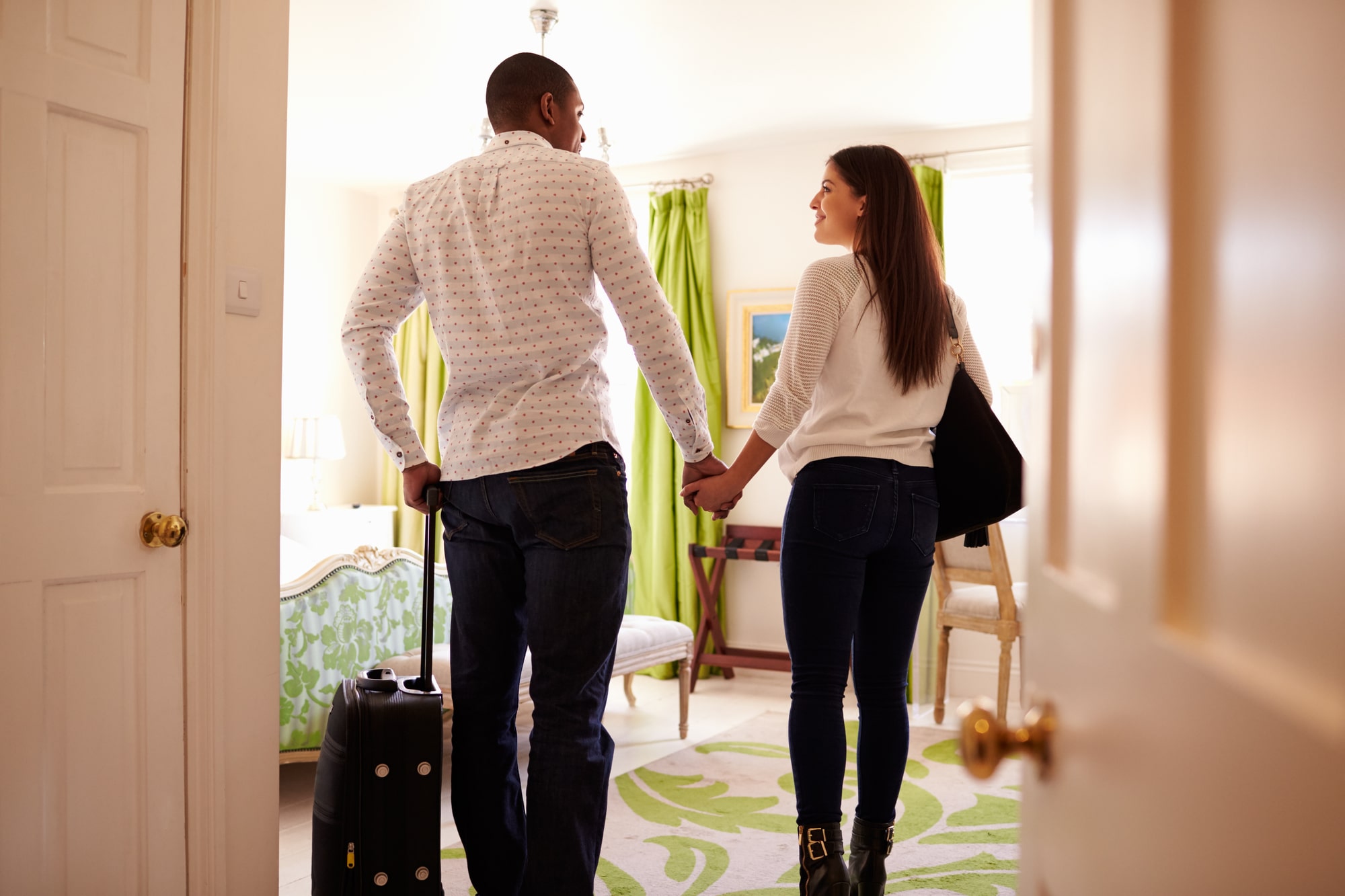If you are like me, you might be planning a vacation where a friend lives so you can meet up and catch up on life. You might even be planning to have them over at your hotel to hangout during the day, but are you allowed to have an extra guest at a hotel?
Before inviting someone to your hotel room, it’s important to know the hotel policies before making any decisions. This will avoid hotel personnel turning you down or asking your guests to leave the premises.
Table of Contents
What Is the Hotel Policy for Visitors?
Visitor policies differ from hotel to hotel. Most hotels allow extra guests to visit the room as long as they follow the hotel rules.
Here are some policy examples we found at popular hotel chains:
- Hotel guests can have visitors to their rooms between 7:00 AM to 11:00 PM.
- A visitor must provide identification, guest name, and room number when checking in with the front desk.
- Hotel guests need to accompany their visitors when using hotel amenities such as the gym or the pool.
However, visitors may not be allowed to enter the hotel premises following the recent Covid-19 safety protocols. Hotels can restrict visitors as well for security reasons. So, best to check the visitor policy with the hotel you are staying in.
Your guest staying in the room for a longer time or overnight may be a different story. Problems can arise if your booking is on a per-person basis. Adding another person in the room can entail an additional fee. Also, you may be violating the hotel’s policy on maximum occupants per room.
Is There a Maximum Occupancy per Room?
Each hotel room has an allowable number of occupants staying at one time. The rooms have a limited number of beds based on the size and layout of the rooms.
The standard capacity of most hotel rooms is 4 people. Changes are possible based on hotel policies and as long as the number does not exceed the maximum occupancy per room.
Why Do Hotels Limit the Number of Occupants per Room?
Hotels limit the occupants in a room for safety reasons. It is also to avoid damage as well as not to disturb other guests.
Upon checking in, the front desk personnel takes note of how many guests there are in a room. Also, when guests decide to check out, the hotel will revaluate their occupancy level for that day.
Safety Regulations
Knowing the number of people in a room helps to check if the number of occupants is in accordance to the building fire code. This is a guide also to know how many people to evacuate in case of emergency.
The building fire code specifies how many people can stay in the hotel at a given time. It also determines the number of people allowed in a room based on its square footage. These specifications have to be followed so it will not cause any damage or casualty in case of a fire.
Unfortunately, hotel fires are not uncommon. Based on the statistics shared by the US Fire Administration:
Each year, there are an estimated 3,900 hotel and motel fires that cause 15 deaths, 100 injuries, and $100 million in property losses.
Thus, following the fire code ensures that evacuation runs smoothly. Overcrowding is also avoided especially when a generator is not working or available. This will also help hotel personnel know how many people to look for if a fire breaks out.
Will Hotel Personnel Know if Visitors Sneak In?
The hotel has ways to find out if you sneak in other people into your hotel room. For one, the security cameras installed in the main public areas help monitor people going in and out of the rooms.
The noise level from your room can bother other hotel guests. They will likely report the noise coming from your room to the concierge. Rowdy and noisy guests can be asked to leave the hotel.
Some hotels will even ask their cleaning staff to check how many toothbrushes are left on the sink. Towel and bedding requests are often monitored to indicate how many people are in a room.
Do Hotels Charge for an Extra Person?
Room rates are usually for double occupancy unless specified. The hotel website or booking applications normally specifies how many people are included in the room rate.
Hotels charge a fee for every additional person staying in the same room beyond what is specified. On the average, the extra person fee ranges from $20 to $50. The rate varies as this can include an extra bed or breakfast.
Guests will you usually be given the chance to move to another room if your group exceeds the maximum occupancy.
Some hotels might give a discounted rate for an additional person or for another room being added to your bill. Make sure to review your options as the rates can vary.
Is a Child Considered an Extra Person?
A majority of hotels allow children to stay for free in a room up to a certain age. Also, up to 2 children can stay for free in the room for most hotels. Requesting an extra bed or a cot though could entail an additional fee.
Travel booking sites like Agoda, specify the child policy for hotels as follows:
Most hotels allow children to stay in the room with parents either with or without an extra bed. The normal hotel policy is not to charge for children if they are under twelve years of age. Some hotels will limit occupancy of a room to two adults and one child. Only a few hotels will have existing bedding for additional children, so an extra bed is usually required. Some hotels will charge for this extra bed.
Thus, children above 12 years old are considered by hotels as an extra person and charge you accordingly. Know the hotel policies then next time you plan to bring in a family member.
There are travel websites too to help you find good deals not just in hotel accommodations but plane ticket as well. These might help in saving money in hotel stays and still able to bring your family to stay with you.

